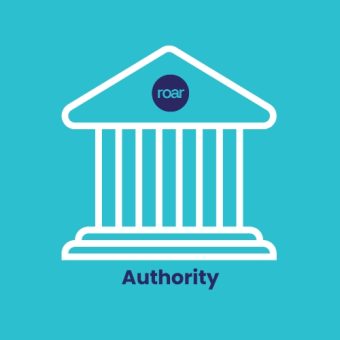With Google, ChatGPT and other AI tools generating answers directly from online content, traditional local SEO tactics are no longer enough.
Introduction
Visibility has always been the goal of local SEO.
But in 2025, being listed isn’t the same as being seen. Google’s AI Overviews now appear in nearly half of UK searches. ChatGPT suggests businesses without users even opening a browser. Perplexity summarises local results in real time—often bypassing websites completely.
If your business content isn’t ready for this shift, your rankings won’t save you. You’re not being outranked. You’re being overlooked.
This article breaks down how local SEO is evolving in an AI-first world, and why getting it right is no longer just a technical job. It’s a strategic necessity.
AI search in 2025
A different kind of search result
Search engines are no longer passive indexes. They are now interpreters: Scanning, summarising, and selecting content to answer questions directly.
This matters more than ever for local queries. If someone searches “best emergency plumber near me” on Google or via ChatGPT, the result they see may be a single paragraph, not a list of websites. And it may come from a business that didn’t even rank first.
Why this changes local SEO
AI search doesn’t prioritise links. It prioritises structured clarity, contextual depth, and topical authority.
If your business hasn’t adjusted its content and metadata for these signals, your chance of appearing in these summarised results drops, meaning clicks and traffic drops also, regardless of your map pack position or domain authority.
How local SEO has evolved
From optimising listings to training AI
Local SEO once meant optimising your Google Business Profile (GBP), maintaining NAP consistency, building citations, and earning reviews.
These still matter.
But they are no longer enough on their own. The real difference now lies in how AI systems interpret your online presence, and whether your content can be selected for answers.
The rise of GEO (Generative engine optimisation)
GEO is about visibility inside AI-generated results.
AI tools pull information from sources they can parse and trust. That means:
-
Structured content using schema markup
-
FAQ-rich pages that address local and service-specific questions
-
Real-world signals like reviews, social mentions, and case studies
-
Topical depth that shows your business is an authority in its niche and area
In short, it’s no longer just about being found. It’s about being chosen.
What to expect from SEO in 2026
1. Hyper-personalised local results
Search will increasingly reflect user history, preferences, device usage and time of day. What one user sees in West London won’t match what another sees in Kent.
2. Voice and assistant-based discovery
Google Assistant, Siri and Alexa will use AI summarisation to suggest local services, without ever referring to a website. Businesses need to be structured for voice-driven extraction. This means a more conversational tone and sentence structure and more FAQ structured content.
3. Schema-first content standards
Expect more preference given to content that uses robust structured data. Pages without it may simply be ignored.
4. Platform-driven summaries
ChatGPT, Gemini and Perplexity are becoming default search tools for time-poor users. Being listed on your own website won’t matter if those platforms don’t extract from it.
5. Even more AI news
Keeping up with all the AI news is already overwhelming and as things ramp up more and more, there’s no doubt that by 2026 there’ll be a new AI feature or article every 10 minutes. That’s why we created a unique AI summariser tool that scrapes all the AI news every day and filters it. Sending us a direct slack message with only relevant information. Cutting through all the noise and chaos to deliver the information we need.
What you should be doing now
Reframe your content strategy
Think beyond keywords. Content must serve as an answer, not just a match.
Instead of “Roof Repairs Leeds,” consider:
-
What questions do your customers ask that AI might answer?
-
Is your content readable and extractable by machines?
-
Does it prove your authority, clarity and relevance?
Implement structured data everywhere
Use tools like Merkle Schema Markup Generator or Google’s Rich Results Test to apply:
-
LocalBusiness
-
FAQPage
-
Service
-
Review
-
OpeningHours
Build AI-friendly FAQs and explainers
If ChatGPT were to answer “how long does a boiler replacement take in Sheffield?” – Would it choose your content?
If not, write a page that makes it easy for it to do so. You have to start thinking “AI-first”. Don’t make the mistake of optimising afterwards.
Track visibility across AI platforms
Check how you appear in:
-
ChatGPT (with browsing enabled)
-
Perplexity.ai
-
Google’s AI Overviews
-
Bing Copilot
These are your new search engines. Your visibility in each matters.
Get strategic with reviews
Quantity still matters. But so does format. Use platforms that allow for structured review output like Trustpilot or Reviews.io. Include star ratings, timestamps, and location markers. All this helps signal to AI models that you are a trusted and genuine provider.
Why this demands more than basic SEO
The rules of local SEO haven’t disappeared. They’ve multiplied.
To remain visible with GEO, it’s no longer just about being listed or linked. It’s about structuring, signalling, and proving your relevance to AI systems that think in terms of relationships, not just ranks.
For many UK service businesses, that’s a shift too far to manage in-house, especially when competitors are already hiring specialists.
That’s why this is no longer a ‘nice-to-have’ strategy, and navigating it correctly may well require a team who understands both the technical and strategic sides of GEO.
Final thoughts
Search is no longer about simply being found amongst a list of link, it’s about being accurately represented, interpreted, and chosen. In an AI-first landscape, visibility depends less on visibility alone and more on how your content fits into how machines understand relevance, trust, and intent.
For businesses navigating this shift, approaches like Generative Engine Optimisation (GEO) offer a way to stay visible and structured for both human users and AI systems.
Want to make sure AI chooses your business? Get in touch below.



